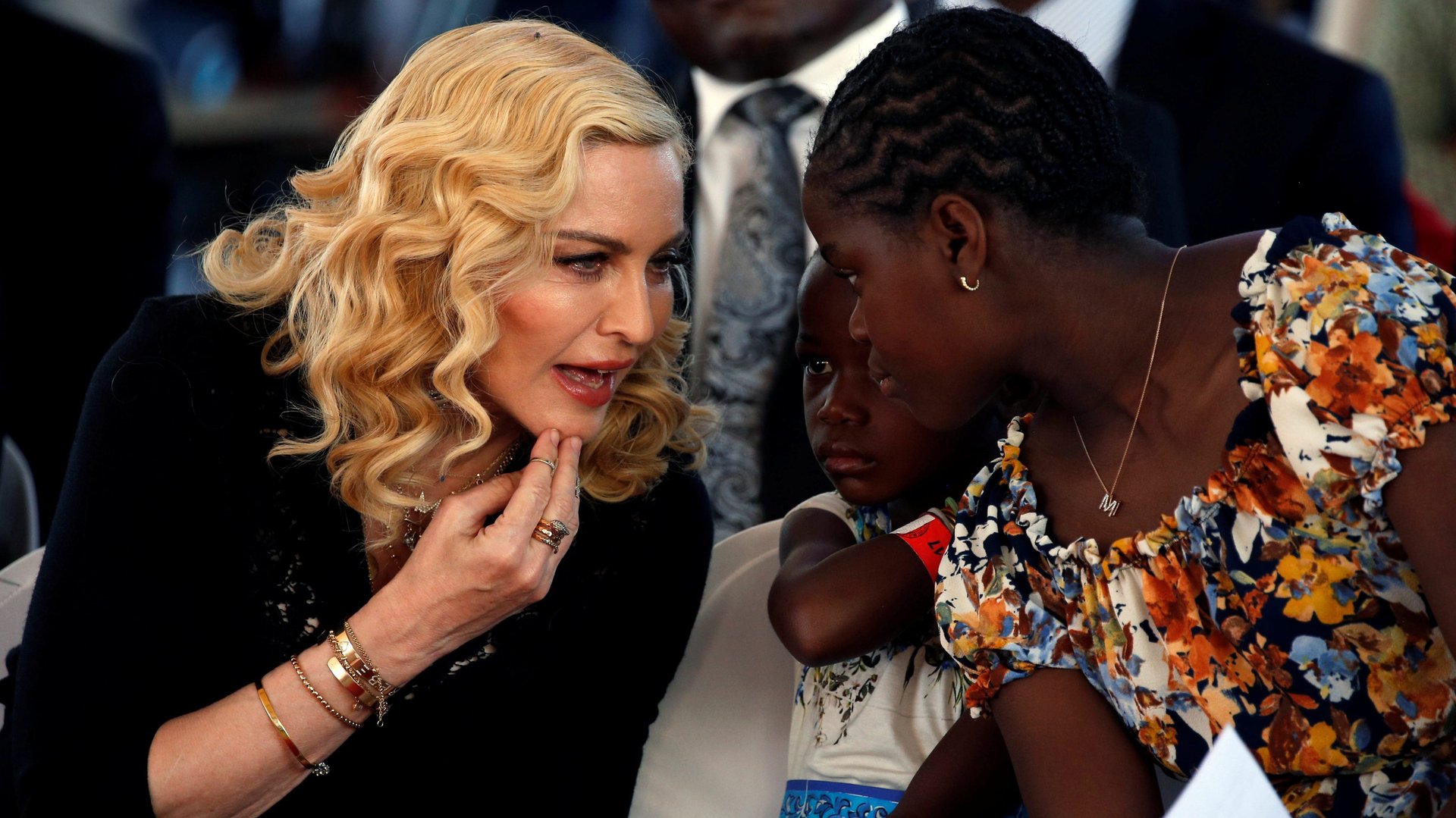Madonna has a message about aging and work that you probably need to hear
Madonna spoke to me this week. Figuratively, that is, through The New York Times Magazine.


Madonna spoke to me this week. Figuratively, that is, through The New York Times Magazine.
“I think you think about growing old too much. I think you think about age too much. I think you should just stop thinking about it,” she said.
“Stop thinking, just live your life and don’t be influenced by society trying to make you feel some type of way about your age or what it is you’re supposed to be doing.”
She was, in fact, speaking to journalist Vanessa Grigoriadis, in a recent interview, when she said these things. The reporter had apparently returned one too many times to the topic of age (Madonna is 60), and how it relates to the singer’s career. But it was like she was staring me in the face—and I’m sure many other readers in their 40s or older felt the same way.
Can we trust her advice?
Indeed, we should all be so tired of the pressure to conform to age-related expectations. And, like Madonna, we should all be prepared to push back against the idea that our age has much to do with our careers and capabilities, unless you’re a principal ballerina or a pro athlete, and perhaps even then.
But would Madonna know of the recent lawsuits against IBM, Citibank, and IKEA, brought by former employees who allege ageism cost them their jobs? Globetrotting between New York, Sintra, London, and Malawi, might she have missed the flap in late 2017 when we learned that Facebook allowed corporate advertisers to limit the audience for their job postings to particular age groups, using an ad-targeting service that invited all forms of discrimination (and which Facebook finally dropped in March of this year)?
We work in a culture that has made the ethos of Silicon Valley its religion, and that doesn’t make ignoring age easy for anyone. Think about it: in El Pescadero, Mexico, there’s a luxury retreat that caters to “elders” in tech, mainly in their 30s and 40s.
In light of these trends, Madonna’s plea to stop thinking about your age, and about what it means in terms of the roles you are suited for, potentially seems out of touch. But ignoring this advice is arguably just as dangerous. It makes us complicit in exactly the kind of systemic ageism, one that is particularly harsh on older women, that Madonna would prefer to stamp out.
Late-life peaks
The market for older workers is actually brighter than usual these days. In the US, for example, older workers are the fastest-growing segment of the workforce, and there are more people are working into their 70s than ever before.
Because of low unemployment, some companies seeking to fill openings are looking out past the obvious young suspects to find potential hires. Many have launched retraining programs or allowed for slower retirement transitions to both attract and retain older workers. Some are reconfiguring their policies and even their workplaces to accommodate older employees, installing softer factory floors that are kinder to aged knees, for example, as BMW did in Germany.
Creative types, meanwhile, can already look to several accomplished artists and writers throughout history who have completely exploded the myth that artistic expression belongs to the young. In fact for some people, the opposite is true.
Consider the contrast between Paul Cézanne and Pablo Picasso. Cézanne painted what became his most valuable masterpieces during his mid-60s, whereas Picasso’s highest-valued work all arrived early in his career.
“The freshness, exuberance, and energy of youth did little for Cézanne,” Malcom Gladwell explained in a 2008 piece in The New Yorker, citing the work of David Galenson, a University of Chicago economist who studies creativity. Cézanne “was a late bloomer,” Gladwell wrote, “—and for some reason in our accounting of genius and creativity we have forgotten to make sense of the Cézannes of the world.”
Over several years of research investigating the most celebrated works of poets, architects, and others, Galenson has developed a theory: there are two types of innovators, and their creativity peaks at different ages.
Conceptual innovators, the disruptors who take an art form to a radical new place, excel in their mid-20s, before they’ve become indoctrinated with the norms of one tradition or industry. Experimental innovators, on the other hand, “take decades of trial and error and accumulated knowledge to make unusual connections, going beyond the conventions of their domain,” as Quartz’s Ephrat Livni recently summarized in a piece about his latest study (paywall), co-authored with Bruce Weinberg, an economist at Ohio State University.
Again, Madonna does not want you fixated on her age
The good news for middle-aged workers today, and all fortunate enough to follow, is that the lengthening trajectory of our careers (Quartz member exclusive) means we’re likely to make some shifts that will lead us to a new place altogether.
As psychologist Dean Keith Simonton noted in Scientific American, “Some late bloomers do not truly hit their stride until their 60s or 70s,” “They often drudged away in uninspiring jobs for decades before discovering their true passion.”
That’s clearly not the case for Madonna, who cemented her status as a global pop icon early in her career and never stopped innovating.
She also has never stopped calling out others when she senses bias and unjust treatment, which is just what she did this week in response to the New York Times profile, which appeared under the headline “Madonna at 60.” The singer found it packed with references and descriptors that she considered ageist and gendered. (Arguably, the writer should have considered herself warned.) So Madonna took to Instagram to express herself: